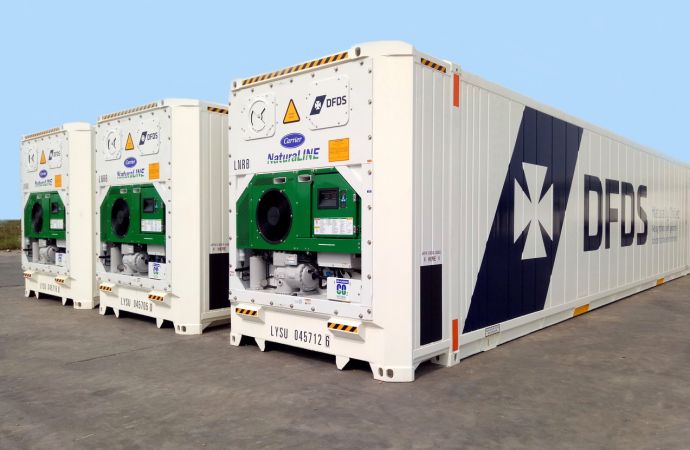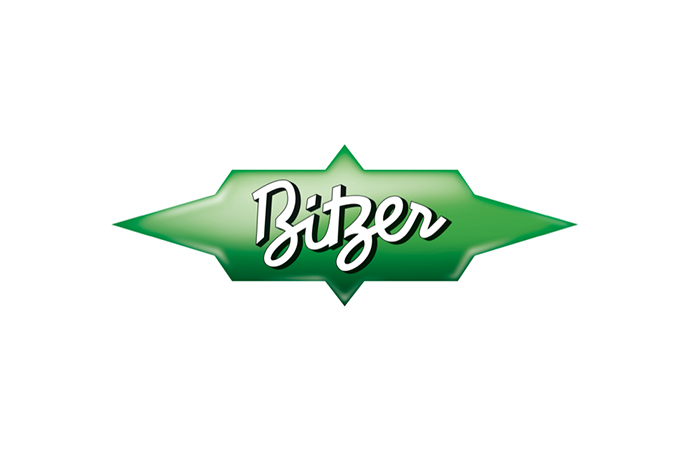In an exclusive interview published in Accelerate America issue #6, Joe Sanchez, application engineering manager at Bitzer, talks about the market opportunities for CO2 in North American supermarkets, food processing plants and ice rinks.

According to Sanchez, thanks to the manufacturing facility in Georgia, Bitzer is well positioned to supply CO2 compressors for the burgeoning U.S. natural refrigerant market. Although ammonia and CO2 compressors represent less than 10% of Bitzer’s business, Sanchez firmly believes that CO2, used in low temperature systems, will be the choice for supermarkets in the future.
CO2 compressors and vessels made in the U.S.
At the Flowery U.S. Inc. factory in Georgia, Bitzer manufactures most of its reciprocating compressor line, from fractional up to 50 HP (horse power) units, for all refrigerants. The assembly of CO2 compressors was introduced here in 2008. Expanded in 2013 to 95,000 square feet, the plant has produced well over 1,000 CO2 transcritical compressors.
The Flowery plant also manufactures 50 CO2 vessels for transcritical booster systems at its ASME-certified Pressure Vessel factory, as well as having a unique capability for pneumatic (dry) testing as opposed to hydro testing.
The advantage of the Flowery Branch facility is that it guarantees flexibility of stock, a key concern for Bitzer customers because of the different voltages used in the U.S. market. What is more, since the compressor manufacturing process itself does not differ significantly for CO2 or fluorinated refrigerants, Bitzer U.S. can take advantage of the overlap of parts.
CO2 growth in supermarkets and industrial refrigeration applications
Currently, the vast majority of Bitzer CO2 compressors in North America are for supermarket racks manufactured by OEM customers like Carnot, Hussmann and Hillphoenix. Although this represents less than 10% of Bitzer U.S. business, Sanchez firmly believes that CO2, used in low-temperature systems, will be the choice for supermarkets in the future.
Outside of commercial refrigeration, CO2 transcritical compressors are also used in ice rink refrigeration, and in the future will be used in U.S. food processing plants where there are heat loads and the potential for heat recovery, said Sanchez. Already in Europe, a CO2 Advansor industrial refrigeration site claims to have achieved better efficiency than ammonia by using ice banks and heat reclaim.
According to Sanchez, the blending of commercial and industrial solutions is a new trend. Industrial engineers are now starting to ask themselves, “What in the commercial world can be adapted to an industrial installation?” For example, users of CO2 are finding that the high volumetric capacity of this refrigerant lends itself to smaller compressors and more flexibility.
ATMOsphere America 2015 “Industrommercial” to showcase CO2 use in industrial refrigeration
Bitzer U.S. recently started up its first semi-hermetic industrial subcritical CO2 installation at a cold-storage facility in North Carolina. The plant uses twelve 30-HP semi-hermetic compressors as opposed to two or three large industrial compressors. This installation will enable the facility to reap benefits the commercial world is already familiar with: no shaft seal leakage, high part-load efficiency, and no slide valve, among others.
Sanchez’s “Industrommercial” CO2 system presentation at ATMOsphere America 2015, on June 26 in Atlanta, will provide more details on the project.
About Bitzer
For 80 years, Bitzer has been manufacturing refrigeration compressors, the “heart” of refrigeration and air conditioning systems. The company is considered a global leader in the production of screw, scroll and semi-hermetic reciprocating compressors for commercial air conditioning and refrigeration applications, with models specifically designed for natural refrigerants including ammonia. In addition to compressors, condensing units and pressure vessels are also part of Bitzer’s product range, which is supplied around the world by more than 40 subsidiaries operating in 90 different countries on five continents.
For 80 years, Bitzer has been manufacturing refrigeration compressors, the “heart” of refrigeration and air conditioning systems. The company is considered a global leader in the production of screw, scroll and semi-hermetic reciprocating compressors for commercial air conditioning and refrigeration applications, with models specifically designed for natural refrigerants including ammonia. In addition to compressors, condensing units and pressure vessels are also part of Bitzer’s product range, which is supplied around the world by more than 40 subsidiaries operating in 90 different countries on five continents.
MORE INFORMATION
Related stories



